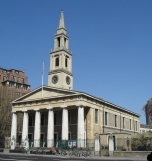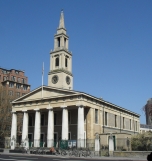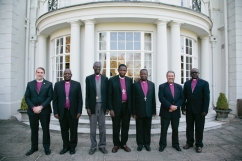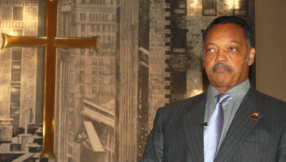Westminster Abbey has been accused of "denial of the Lordship of Jesus Christ" after the prophet Muhammad was described as "the chosen one" in a prayer at a First World War service.
The Abbey, which is a Royal Peculiar under the personal jurisdiction of the Queen and outside the Church of England's diocesan structures, included a Turkish prayer in the recent service of commemoration and thanksgiving marking the centenary of the Gallipoli campaign.
The Archbishop Cranmer blogspot noted that God was thanked in the Abbey, and referred to as Allah, and there was no problem with that because Allah is simply Arabic for 'The God'.
"We may quibble over conflicting doctrines and cavil over contradictory revelations, but if St Paul can address a meeting of the Areopagus and exhort the incipient virtue in the ignorance of Athenian religiosity, whether you call the Creator of the universe 'God', 'Jehovah', 'YHWH', 'I Am' or 'Allah', you are acknowledging (in mirrors darkly) the One who does not live in temples built by human hands, and the One who gives everyone life and breath and everything else," he wrote.
But Cranmer said there was a problem with the prayer the congregation heard, which began "Bizleri yaratan" and included the phrase: "Muhammed Mustafa".
He wrote: "It's hard to be offended by something one cannot understand. And there can be no offence at all caused by any exhortation of God in Turkish, for God is not an Englishman."
The problem came in the translated succession of prophets which he described as "a comprehensible assertion of Islamic theology".
The succession of prophets "from Adam, Noah and Abraham to Moses, Jesus and Mohammed Mustafa" is chronological, with the first four common to Judaism, Christianity and Islam.
Jesus as a prophet is common to Christianity and Islam and Mohammed is a prophet of Islam alone.
Cranmer continues: "Mustafa is an epithet ascribed by Muslims to Mohammed: it means The Chosen One."
He notes that the Abbey did not offer a translation of this term and says that had it been rendered in English during a Christian service, it "would have caused undoubted offence".
Rev Dominic Stockford, pastor of Christ Church, Teddington and chairman of the Protestant Truth Society said: "The recent use of a prayer equating Muhammad with Jesus, used in Westminster Abbey, was the latest in a string of shocking steps taken by the Church of England recently. And for it to be read out in Turkish, contrary to Article XXIV, being as it was 'a tongue not understanded of the people' compounds the matter."
He continued: "How any Christian can think that Jesus and Muhammad can be put together as prophets is beyond me. For one thing, Jesus is no mere prophet, but is Saviour and Lord. The Bible is clear as can be that there is only one God, and that there is only one way to God - and they are Jesus own words which clarify this: 'Jesus said to him, "I am the way, and the truth, and the life; no one comes to the Father but through Me."' (John 14:6). And for another, the religion of Islam is contrary to that of Christianity, denying as it does the divinity of Jesus Christ, and even denying that God has a Son (Surah 19:35-36), a Divinity and a Sonship without which Jesus could be no Saviour."
He described the prayer as a "heresy" that "besmirched the truth of the Gospel" and added: "What is really disappointing to me is that I find myself unsurprised by this latest unbiblical foolishness perpetrated by the Church of England."
Andrea Minichiello Williams of Christian Concern said: "This is an overt denial of the Lordship of Jesus Christ and is an attack on the central tenants of the Christian faith. It is from Jesus that all blessings flow. Westminster Abbey would do well to remember that."
Andrew Symes of Anglican Mainstream said: "Archbishop Cranmer has done us all a service in this well-researched blog pointing out that, in an attempt to show welcome and understanding to other faiths, the Church of England has once again allowed Muslims to declare the supremacy of their religion in a Christian church."
Other recent episodes include a Muslim speaker beginning his address to General Synod in February with words in Arabic which mean "there is no God but Allah, and Muhammad is his prophet". There was also controversy over a prayer service led by Muslims at St John's Waterloo.
Symes said: "There are very effective ways of building bridges between communities and faith groups which do not involve making seriously controversial and divisive theological statements as part of misguided attempts at 'multi-faith worship'. While there may be some debate about whether the UK is still a Christian country, we should certainly be confident enough to assert that the C of E is a Christian church. Can the Cathedral Dean and the Bishop of London please publicly make this assertion and apologise for the serious offence caused?"
Christian Today is still awaiting a comment from Westminster Abbey
















